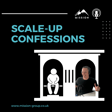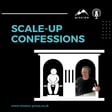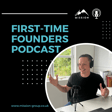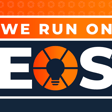
How to build a profitable business, stay in control and then use it to do good things!
Jonny White is the Founder of Ticket Tailor, a bootstrapped SaaS ticketing platform which helps event organisers sell 1 million tickets per month.
In this episode of the First-time Founders Podcast, Jonny explains how he managed to build TicketTailor to scale without a cofounder or any outside capital (Jonny attributes his success - for those of us who define success as building a profitable company that operates with purpose - preserving optionality, keeping things simple and taking actions today with a clear vision for tomorrow in mind).
Interested viewers can reach Jonny via https://www.linkedin.com/in/jonnywhite1/ and Rob (https://www.linkedin.com/in/robertliddiard/) at Rob@mission-group.co.uk (or to book some free time with Rob, visit https://www.eosworldwide.com/rob-liddiard). Alternatively, if you’d prefer Rob to send you a free copy of Traction (the book by Gino Wickman which explains The Entrepreneurial Operating System) just complete the form here: https://www.eosworldwide.com/traction-giveaway?implementer_email=rob.liddiard@eosworldwide.com



